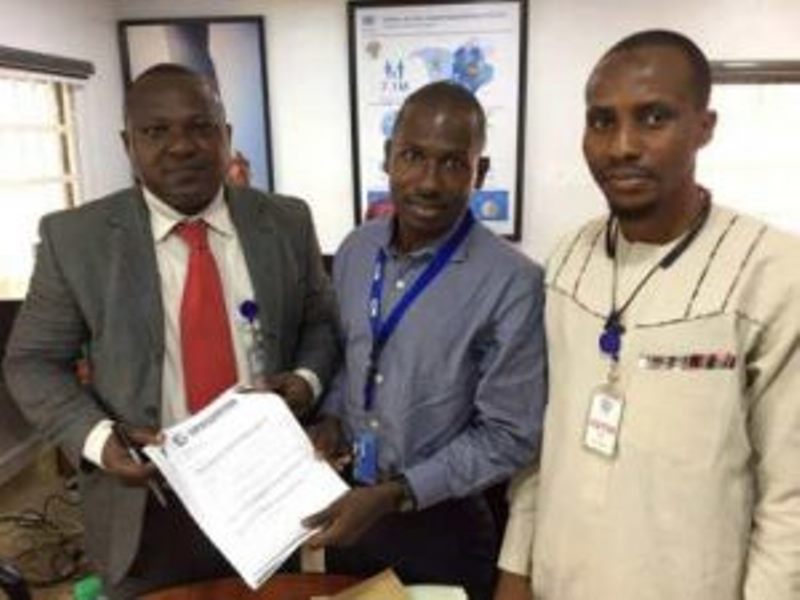As nations map out strategies to contain the deadly coronavirus otherwise called Covid-19, the International Organisation for Migration (IOM) has called for optimal attention to be paid to the health of migrants.
The call was made by IOM Public Information Officer in Nigeria, Mr. Jorge Galindo while making presentation at the online summit tagged “Migration and Covid-19” organised by the Journalists International Forum For Migration, (JIFORM).
According to the President of JIFORM, Ajibola Abayomi, the seminar was part of the training workshop aimed at boosting the capacity of over 150 journalists covering migration across the continents as members of JIFORM.
Other speakers at the event were drawn from the Malawi Police Authority, Nigeria Immigration Service (NIS) and National Agency for Prohibition of Trafficking in Persons (NAPTIP), Lagos Zonal command.
Galindo went down the memory lane recalling that IOM began operations in Nigeria in 2001 with the Assisted Voluntary Return and Reintegration (AVRR) programme that had helped more than 22,000 Nigerian migrants return home from more than 20 countries across Europe, the Middle East and North Africa.
Stressing the need to pay more attention to migrants’ health as Covid-19 ravages the globe, he noted thus: “We live in an era of unprecedented human mobility. Mobility, an integral part of human development, has always been a method of adaptation to environmental, political, and economic developments.
“It contributes to the wealth, dynamism, survival and stability of the societies. IOM estimates that one in every seven people in the world is a migrant. While it has been demonstrated that these migrants can benefit their countries of origin and destination, as well as their families and communities on both sides of the migration spectrum, the dominant media discourse today does not reflect the complexity of migration”, he said.
He said that the United Nations Network on Migration and IOM as its coordinator and secretariat urged that all people including migrants regardless of their migratory status were included in efforts to mitigate and roll back the impact of Covid-19.
“To that end, migrants must be seen as both potential victims and as an integral part of any effective public health response. It is particularly important that all authorities make every effort to confront xenophobia, including where migrants and others are subject to discrimination or violence linked to the origin and spreading of the pandemic.
“COVID-19 does not discriminate and/nor should our response, if it is to succeed. Migrants and people on the move face the same health threats from COVID-19 as host populations but may face particular vulnerabilities due to the circumstances of their journey and the poor living and working conditions in which they can find themselves”, he added.
Rather than considering migration as a “problem” to be solved, we should consider it as a reality to be managed. Seeing migration as a “problem” contributes to the rise of a discourse that assimilates migrants to “invaders” and, in times of global epidemics, “disease carriers. Only with an inclusive approach, truly leaving no-one behind, will we all be able to overcome this global crisis of unprecedented magnitude and proportions.
Photo: (L-R) JIFORM President, Ajibola Abayomi presenting a proposal on international migration conference to the Chief Mission of the International Organization for Migration (IOM) Nigeria, Mr. Frantz Celestin and a member of JIFORM, Mr. Lateef Oladimeji Salam, the Continental Head of African Youths Commission for Development in Africa recently in Abuja.
Send your news, press releases/articles to augustinenwadinamuo@yahoo.com. Also, follow us on Twitter @ptreporters and on Facebook on facebook.com/primetimereporters or call the editor on 07030661526, 08053908817.

